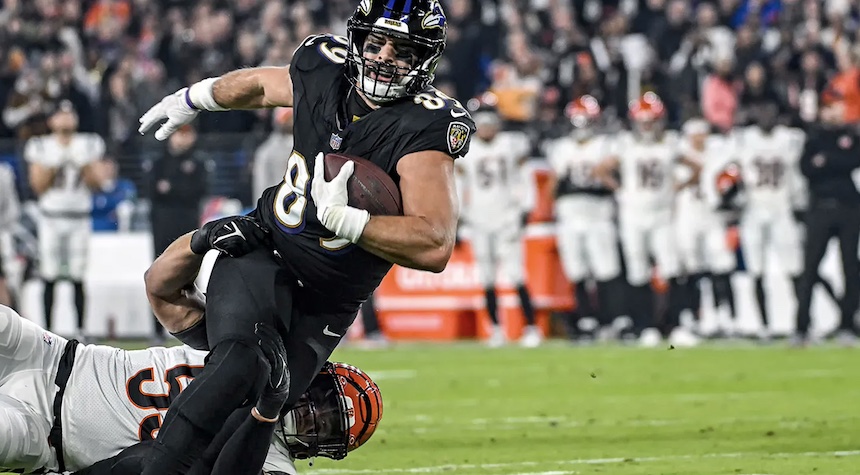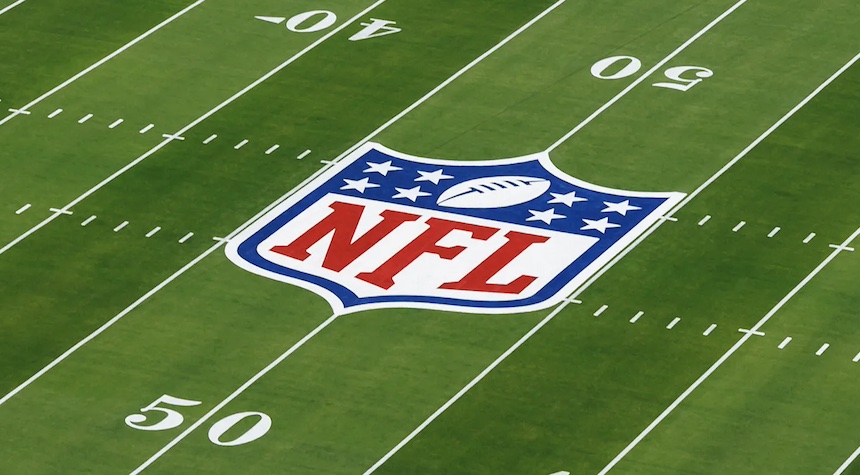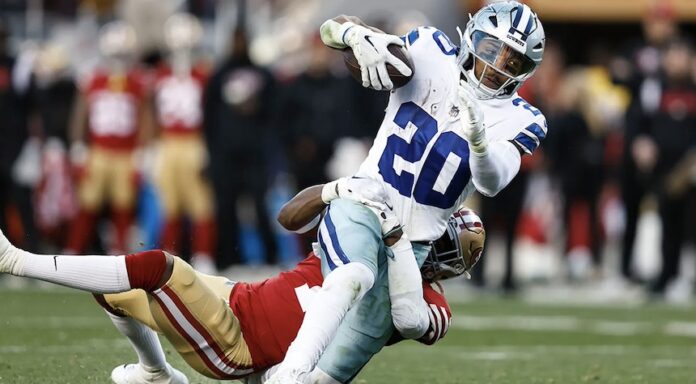The NFL announced a major rule change on Monday, which will have a profound impact on defensive players as well as anyone trying to tackle in games throughout the 2024 and beyond seasons.
At the league’s annual meeting, the competition committee voted to ban hip-drop tackling and penalize anyone who uses the technique in play. According to NFL Network, the decision was unanimous.
ESPN reports that if a tackle is flagged, a team may be penalized 15 yards. The league may also issue a fine or a warning to the player.
A controversial tackle has caused a stir in the league. The defender wraps a ball carrier with their arms or hands, then drops their hips causing their legs and feet to be trapped.

This tackle has injured many players. Commissioner Roger Goodell led the charge for this rule to be put to a vote.
The hip-drop can be seen in the tackle that former San Francisco 49ers’ safety Jimmie Ward made against the then Dallas Cowboys running back Tony Pollard during the postseason of 2022. Ward’s tackle caused Pollard to sustain an ankle injury which required surgery.
Mark Andrews, Baltimore Ravens tight-end, was also the victim of a hip-drop tackle during this season. He sustained a serious injury against the Cincinnati Bengals that cost him his entire 2023 season.

Pro Football Talk reports that the NFL has identified 105 hip-dropped tackles since then. The NFL also found that the hip-drop tackle increased the risk of injury by 25 times compared to the standard tackle injury rates.
Last week, the NFL Players Association rejected the idea of banning tackles.
The NFLPA stated, “The players are opposed to any attempt by NFL to implement a new rule prohibiting the swivel-hip-drop’ tackle.” The NFLPA is committed to improving our game in the interest of health and safety. However, we are unable to support a change to a rule that will confuse players, coaches, officials, and most importantly fans. We again call on the NFL to reconsider implementing this new rule.


